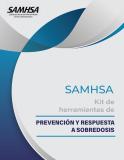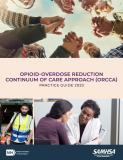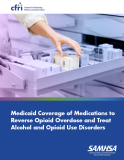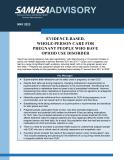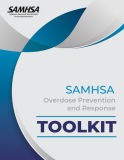
The toolkit, designed to augment overdose prevention and reversal training, provides guidance on the role of opioid overdose reversal medications, including naloxone and nalmefene, and how to respond to an overdose. It also contains appendices for specific audiences, including people who use drugs (PWUD), people who take prescription opioids, first responders, healthcare practitioners, and others.
Units per Product
Download
Overdose Prevention and Response Toolkit
File Type: PDF
File Size: 666 KB


